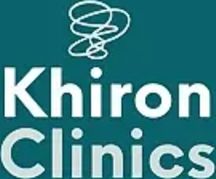

Khiron Clinics - Outpatient Treatment
Treatment Focus
This center treats mental health conditions and co-occurring substance use. You receive collaborative, individualized treatment that addresses both issues for whole-person healing.
Primary Level of Care
Outpatient treatment offers flexible therapeutic and medical care without the need to stay overnight in a hospital or inpatient facility. Some centers offer intensive outpatient program (IOP), which falls between inpatient care and traditional outpatient service.
Claimed
Recovery.com has connected directly with this treatment provider to validate the information in their profile.
Treatment Focus
This center treats mental health conditions and co-occurring substance use. You receive collaborative, individualized treatment that addresses both issues for whole-person healing.
Primary Level of Care
Outpatient treatment offers flexible therapeutic and medical care without the need to stay overnight in a hospital or inpatient facility. Some centers offer intensive outpatient program (IOP), which falls between inpatient care and traditional outpatient service.
Provider's Policy
We currently accept insurance on a case-by-case basis. We've worked with Bupa Global, AXA, WPA, and Cigna.
Khiron Clinics - Outpatient Treatment
Khiron Clinics - Outpatient Treatment
About Khiron Clinics - Outpatient Treatment
Khiron Clinics helps clients make sense of what is behind their mental and physical health issues, and together they find a path to heal their root causes, promoting lasting recovery. Their clients typically come with an array of mental and physical health diagnoses and symptoms, such as anxiety, depression, bipolar disorder, eating disorders, insomnia, digestive disorders, and much more. Clients have often already had treatment for these issues with limited success. They provide revolutionised trauma therapy. Their outpatient campuses, located in central London, offers intensive outpatient (IOP) care from 10 a.m. to 4 p.m. for 2 to 4 days a week on Mondays through Thursdays in person, as well as a once-a-week outpatient option in person or virtually.
Khiron Clinics offers direct admission to their outpatient programs, as well as allowing outpatient treatment following treatment at their residential facilities.
Globally Recognised Trauma Expertise
Khiron Clinics sees mental health issues as manifestations of unresolved trauma that leads to a dysregulated nervous system. Their staff have been trained, informed and supervised by the world’s leading trauma experts in the most effective modalities available. They predominantly adopt what is called a ‘bottom-up’ approach: using cutting-edge nervous-system based treatments, they let the body’s responses and sensations guide clients to uncover and release stuck trauma and emotions. This process helps regulate the nervous system, therefore increasing feelings of safety in the body and a greater sense of control over emotions, triggers, and reactions. Clients discover a new lens in which to view their issues, which can offer hope for recovery and a feeling of being truly understood, often for the first time.
The Most Up-to-Date Techniques
The treatments and therapies Khiron Clinics offer are informed by the latest research in trauma and by the trauma experts that supervise and train their clinicians. Drawing upon a large range of one-to-one and group modalities, staff listen to what works for each individual instead of only following traditional therapies. A sample of the therapy modalities includes Polyvagal-Informed therapy, sensorimotor psychotherapy, somatic experiencing, trauma-informed stabilization treatment, eye movement desensitization and reprocessing (EMDR), and internal family systems. They also offer activities such as yoga, equine therapy, tai-chi, breathwork, cold water therapy, ecotherapy and more. The aftercare plan includes 3, 6, and 12-month check-ins to ensure the client continues to feel supported.
A Welcoming Campus for Worldwide Clientele
Nestled in the charming countryside an hour and a half northwest of London, Khiron Clinics offers a range of housing options depending upon the level of care and privacy desired. Clients can receive 24/7 care in a private or shared room, or live independently solo or with others. Clients enjoy plentiful access to nature, gardens, walking trails, and a swimming pool. To make it easier for international clients, they arrange and pay for transport. They also offer a range of options for insurance and payment that they discuss on a case-by-case basis. They recognise that this process can be confusing and are committed to making it as smooth and efficient as possible, ensuring clients receive the necessary care without delay.

Center Overview
Treatment Focus
This center treats mental health conditions and co-occurring substance use. You receive collaborative, individualized treatment that addresses both issues for whole-person healing.
Insurance Accepted
Cash Pay Rates
Estimated Cash Pay Rate
Center pricing can vary based on program and length of stay. Contact the center for more information. Recovery.com strives for price transparency so you can make an informed decision.
Levels of Care







Your Care Options
Specializations
Personality Disorders
Personality disorders destabilize the way a person thinks, feels, and behaves. If untreated, they can undermine relationships and lead to severe distress.
Anxiety
Anxiety is a common mental health condition that can include excessive worry, panic attacks, physical tension, and increased blood pressure.
Bipolar
This mental health condition is characterized by extreme mood swings between depression, mania, and remission.
Burnout
Burnout entails mental and physical exhaustion, and leads to a severe lack of fulfillment. This condition is often caused by overwork.
Depression
Symptoms of depression may include fatigue, a sense of numbness, and loss of interest in activities. This condition can range from mild to severe.
Licensed Primary Mental Health
Some primary care providers offer mental health diagnosis and treatment. This can prevent patients from developing more serious conditions.
Suicidality
With suicidality, a person fantasizes about suicide, or makes a plan to carry it out. This is a serious mental health symptom.
Trauma
Some traumatic events are so disturbing that they cause long-term mental health problems. Those ongoing issues can also be referred to as "trauma."
Who We Treat
Older Adults
Addiction and mental health treatment caters to adults 55+ and the age-specific challenges that can come with recovery, wellness, and overall happiness.
Executives
Executive treatment programs typically directly support the needs of people who manage businesses and may provide flexible schedules and office space to allow work during treatment.
Young Adults
Emerging adults ages 18-25 receive treatment catered to the unique challenges of early adulthood, like college, risky behaviors, and vocational struggles.
LGBTQ+
Addiction and mental illnesses in the LGBTQ+ community must be treated with an affirming, safe, and relevant approach, which many centers provide.
Men and Women
Men and women attend treatment for addiction in a co-ed setting, going to therapy groups together to share experiences, struggles, and successes.
Midlife Adults
For adults ages 40+, treatment shifts to focus on the unique challenges, blocks, and risk factors of their age group, and unites peers in a similar community.
Approaches
Evidence-Based
A combination of scientifically rooted therapies and treatments make up evidence-based care, defined by their measured and proven results.
Holistic
A non-medicinal, wellness-focused approach that aims to align the mind, body, and spirit for deep and lasting healing.
Personalized Treatment
The specific needs, histories, and conditions of individual patients receive personalized, highly relevant care throughout their recovery journey.
Therapeutic Community
Therapeutic communities allow patients to contribute to the success and progress of their community, through healthy behaviors or even basic chores.
Therapies
1-on-1 Counseling
Patient and therapist meet 1-on-1 to work through difficult emotions and behavioral challenges in a personal, private setting.
Meditation & Mindfulness
A practiced state of mind that brings patients to the present. It allows them to become fully aware of themselves, their feelings, and the present moment.
Play Therapy
This approach is commonly used with children. It incorporates elements of play and self-expression, like boardgames, finger painting, dolls, and blocks.
Trauma-Specific Therapy
This form of talk therapy addresses any childhood trauma at the root of a patient's current diagnosis.
Online Therapy
Patients can connect with a therapist via videochat, messaging, email, or phone. Remote therapy makes treatment more accessible.
Mindfulness Therapy
This ancient practice can be mental, emotional, and even spiritual. In meditation, you focus your attention on the present moment without judgement.
Attachment-Based Family Therapy
ABFT is a trauma-focused therapy that teaches you to form healthy relationships by rebuilding trust and healing attachment issues formed in childhood.
Animal Therapy
Animals can inspire trust and self-worth. In this experiential therapy, guided interactions are used to improve social skills and emotion regulation.
Conditions We Treat
Grief and Loss
Grief is a natural reaction to loss, but severe grief can interfere with your ability to function. You can get treatment for this condition.
Personality Disorders
Personality disorders destabilize the way a person thinks, feels, and behaves. If untreated, they can undermine relationships and lead to severe distress.
ADHD, ADD
ADHD is a common mental health condition caused by dopamine imbalance. Common symptoms include inattention, hyperactivitiy, and impulsivity.
Anger
Although anger itself isn't a disorder, it can get out of hand. If this feeling interferes with your relationships and daily functioning, treatment can help.
Anxiety
Anxiety is a common mental health condition that can include excessive worry, panic attacks, physical tension, and increased blood pressure.
Bipolar
This mental health condition is characterized by extreme mood swings between depression, mania, and remission.
Burnout
Burnout entails mental and physical exhaustion, and leads to a severe lack of fulfillment. This condition is often caused by overwork.
Substances We Treat
Chronic Relapse
Consistent relapse occurs repeatedly, after partial recovery from addiction. This condition requires long-term treatment.
Co-Occurring Disorders
A person with multiple mental health diagnoses, such as addiction and depression, has co-occurring disorders also called dual diagnosis.
Drug Addiction
Drug addiction is the excessive and repetitive use of substances, despite harmful consequences to a person's life, health, and relationships.
Prescription Drugs
It's possible to abuse any drug, even prescribed ones. If you crave a medication, or regularly take it more than directed, you may have an addiction.
Languages
Aftercare
Care Designed for Your Needs
Amenities
Special Considerations
Couples program
Using gentle clinical care, therapists guide patients and their partner through guided sessions to address issues and work towards lasting solutions.
Young Adults Program
Programs for young adults bring teens 18+ together to discuss age-specific challenges, vocational and educational progress, and successes in treatment.
Activities
Yoga
Yoga is both a physical and spiritual practice. It includes a flow of movement, breathing techniques, and meditation.






